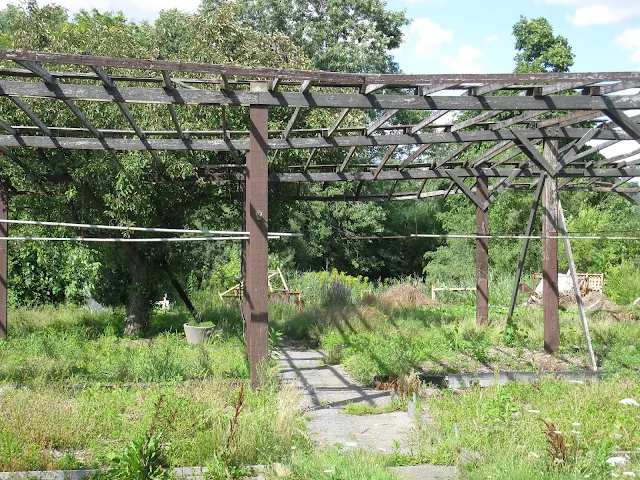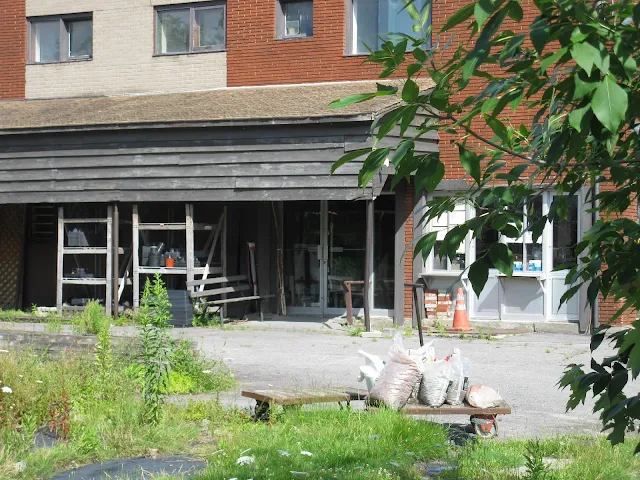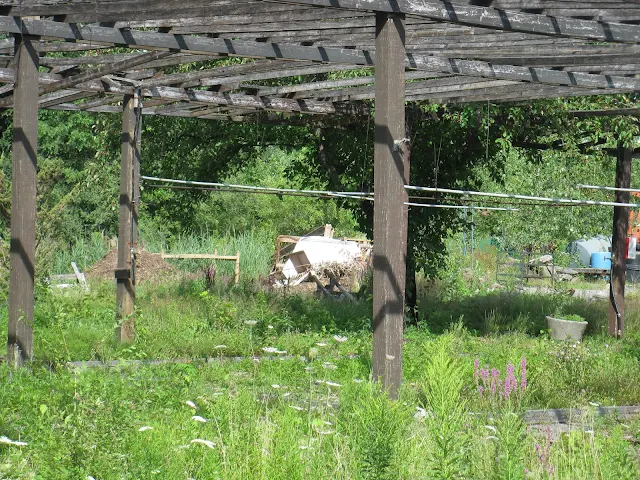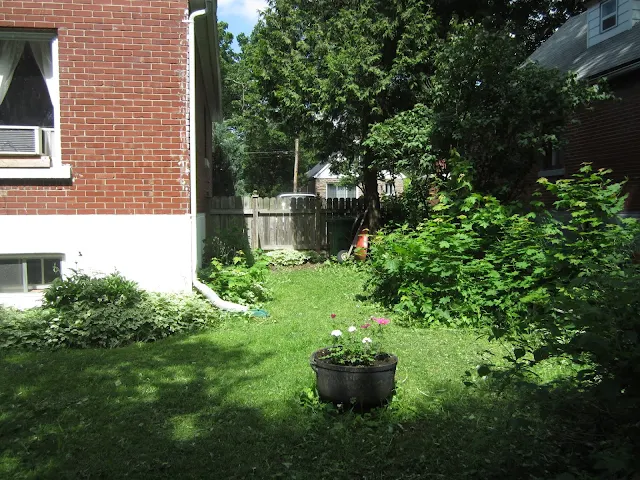
I used to watch those home improvement shows on HGTV, someone would buy a run-down 1950s bungalow and then the home improvers would arrive, they've become celebrities, and quickly decide to rip out the purple bathroom and old fashioned kitchen, and make the whole place open floor concept, just a huge room. Nowadays, apparently, people want walls since they`re working and staying at home a lot of the time, they want some private space. The renovated old bungalows look better because they`re fixed up, painted, but they all look the same. They look like the places that are staged by real estate agents, nothing is personal, no family photos or anything familiar is allowed, books are in storage, its a soulless environment meant for a potential buyer. After a few years of watching these programmes on television I began seeing some truly ugly renovations. That was when I decided that just about anybody could do this job, but not the physical work involved; go to a big box hardware and buy whatever is the latest in faucets, tiles, paint colours or wall paper, fake fireplaces, appliances and back splash tiles, cabinet and drawer pulls, and you will end up with a contemporary house. But not a home, that requires people. I must add that taking a home built in 1950 and tearing down the walls, or a home from 1870 and making it contemporary, destroys the original ambience of the home; you may as well tear the house down and begin again, you have destroyed the original architecture of the building`s interior and, especially in an older house, you have not restored it, you have destroyed it. I know this because after I sold our 1870 country home someone bought it and destroyed it with their renovations.
There are two approaches to poetry and gardening, two types of poets and gardeners: classical
and romantic, formal and informal. I have known people who buy annuals every spring and lay out perfect gardens, designed with colour and plant in mind, height and appearance, and placed in garden beds along the edge of the garden. These gardens are a lot or work and they look pretty good. These are the classicist middle class gardeners. On the other end of the spectrum are the romantics, these are the cottage gardeners. Of course, most gardeners are somewhere in the middle, neither formal nor informal, they have lovely city or country gardens. I won`t bother with the non-gardeners, the patch of dying grass with no flowers, or one or two flowers, a few impatiens, and so on.
I was reading someone`s comments on how to plant a cottage garden. Tall spiky flowers go together, similar colours go together, and so on. Some planning is important, in fact I do a lot of planning, usually it`s about where I will expand the garden and if I have the time for maintaining a larger garden. I am fairly slow at this type of thing and it may take a few years to fully implement my plans, it may even take up years I have fewer of. But, otherwise, there is not a lot of planning for country gardens; I favour gardens that are anarchic and show some returning to nature. This is especially true of the cottage garden.
Over the years I have enjoyed walking by the city farm garden behind the student residence at the Loyola Campus of Concordia University. They grow food for food banks and they used to also sell what they grew at a market. Now, the garden and herb area has been more or less abandoned and it has gone, as they say, wild. But the flowers and other plants are still there, cone flowers, daisies, horse radish, different herbs, fruit berries, lilac bushes, and so on. It all needs a good watering and it is now anarchic and unorganized; it has moved towards the wild category. But in nature what seems unorganized only means it is untouched by people. Order is imposed by the observer, it may not be inherent in the garden. This area of the former city farm garden is now a cottage garden and it is doing its best to survive since no one ever waters or weeds it, but it is still a garden and it is enjoyable as it is. In effect, we might define a cottage garden as controlled wilderness, a contradiction but the best I can do.
My only rule for my garden, other than the obvious--water your plants, maximize sunlight, buy plants in your hardy zone or they may not last the winter--is that the tall plants are in the back of the flower beds, the shorter plants are in the front of the flower beds, but this is common sense.




















































